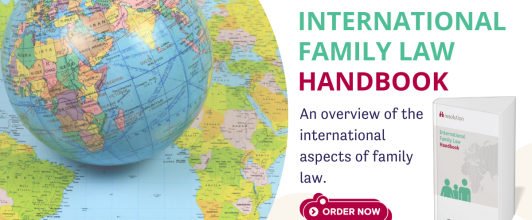
The Review
The Review is Resolution's bi-monthly magazine for members. Publishing six times a year with a mix of features, law and practice and news from the regions.
Broad range of information for professionals and practitioners in family law and justice.
Showing 441 - 460 of 518

The Review is Resolution's bi-monthly magazine for members. Publishing six times a year with a mix of features, law and practice and news from the regions.

Resonate is a new blog from Resolution, bringing together voices from across family law to share insight, experience and both personal and professional perspectives
As part of Resolution's Code of Practice members are asked to use the Good Practice Guides as part of their day to day work. These represent Resolution's core values and are designed to offer knowledge and guidance to our members.

Resolution Together is a way of working that allows lawyers to work with and advise couples jointly, including providing appropriate legal advice, through a divorce or separation.

Find resources on mediation, collaborative practice, arbitration and more.

This list of recommendations of family lawyers in other jurisdictions has been compiled by the members of Resolution's International Committee based on their working experience. The lawyers on this list are not Resolution members - unless indicated - and as such are not endorsed or recommended by Resolution.
This study, commissioned by the European Parliament’s Policy Department for Citizens’ Rights and Constitutional Affairs explores the possible legal scenarios of judicial cooperation between the EU and the UK in the area of family law.
This is a recording of the Family Justice Question Time from Resolution's National Conference in Manchester on 6th April 2019.
Join the largest network of family mediators in England and Wales and start your mediation training with Resolution.
Listen to the Finance Update presented at Resolution's National Conference 2019 by Grant Howell and Andrew Newbury (5th April 2019).
This is a glossary of key terms in international family law.
This list of useful links and resources accompanies Resolution's Guide to International Family Law.
This table of forms accompanies Resolution's Guide to International Family Law.
This is a table of cases that accompanies Resolution's Guide to International Family Law.
This is a table of legislation that accompanies Resolution's Guide to International Family Law.
This chapter considers different immigration law issues that can arise across the spectrum of international family law.
This chapter considers what is required to achieve jurisdiction so that an order can be made under Part IV of the Children Act 1989.
This chapter deals with the issues that may arise when dealing with an international adoption.
UK law supports surrogacy if it fits a model deemed acceptable: purportedly altruistic, consenting and privately arranged. Surrogacy is therefore not illegal in the UK but it is restricted by legislation.
The issue discussed in this chapter arises when or after an international relationship breaks down and either of the parents wishes to relocate.
Always consider child abduction/retention in any case involving a child and a foreign element.
The fundamental rule in this jurisdiction is that the responsibility of a parent as regards the person and upbringing of a child is unaffected by domicile or nationality.
This chapter looks at how it is possible to transfer parental responsibility proceedings between member states, beyond the jurisdictional rules.